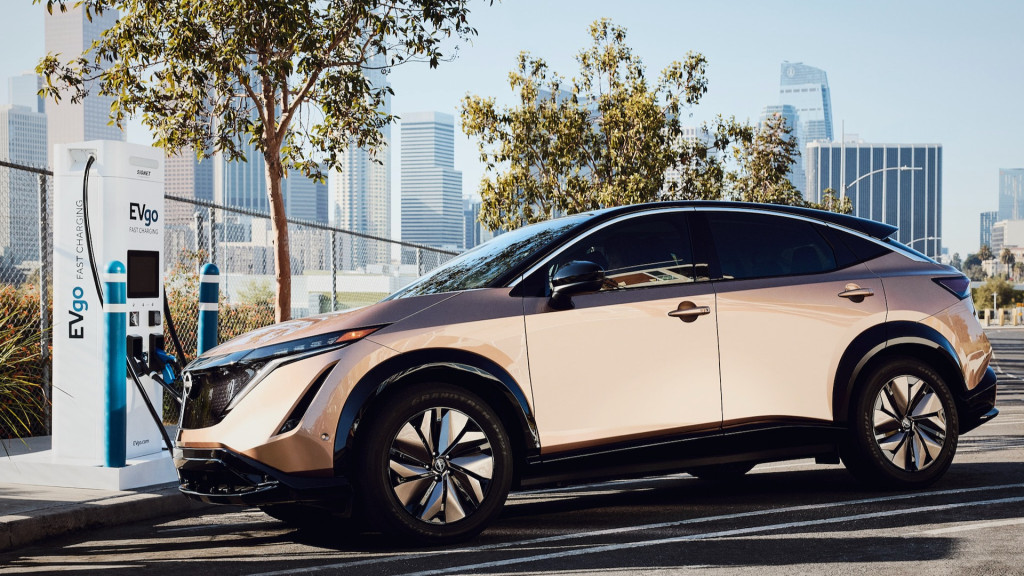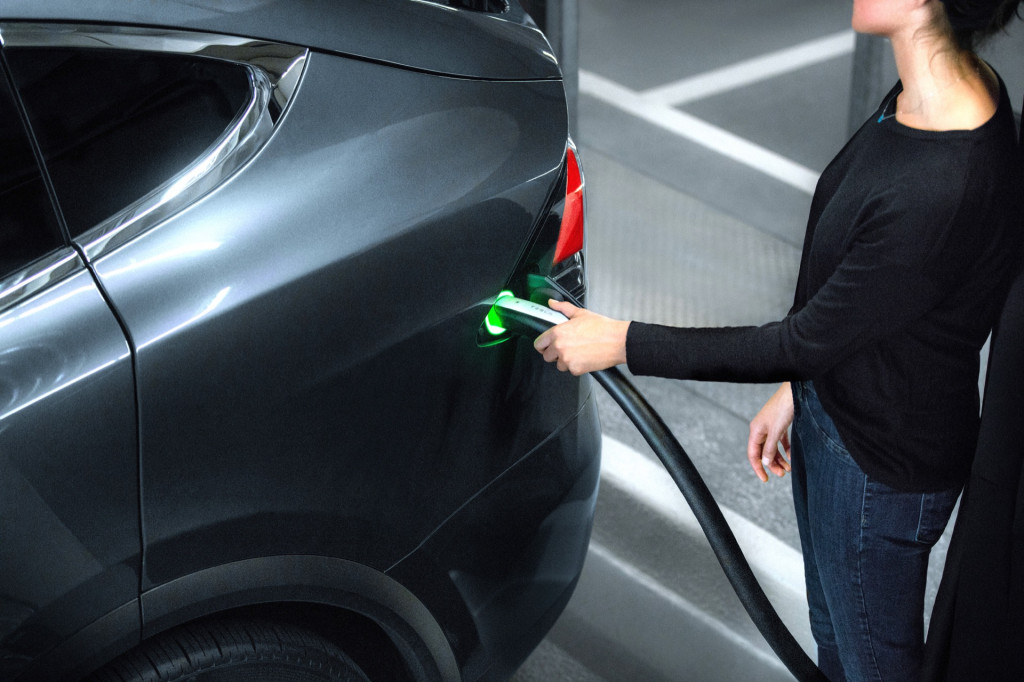
[ad_1]
Analysis funded by the U.S. Division of Vitality (DOE) is bringing the cybersecurity image for EV charging infrastructure into focus.
Researchers at Sandia Nationwide Laboratories have been finding out vulnerabilities in charging infrastructure for the previous 4 years alongside different federal services, in response to a Sandia press launch, and lately printed a paper with their findings.
“Electrical automobile charging infrastructure has a number of vulnerabilities starting from skimming bank card info—identical to at typical gasoline pumps or ATMs—to utilizing cloud servers to hijack a complete electrical automobile charger community,” the discharge stated.

2023 Nissan Ariya at EVgo charging station
Researchers checked out various kinds of interfaces, together with vehicle-to-charger connections, wi-fi communications, cloud providers, and charger upkeep ports for each AC and DC chargers.
They reportedly discovered vulnerabilities for every interface sort, together with the flexibility of hackers to intercept vehicle-to-charger communications from greater than 50 yards away. Argonne Nationwide Laboratory researchers discovered that not all chargers had enough firewalls to dam incursions, whereas Idaho Nationwide Laboratory researchers discovered that some programs had been susceptible to malicious firmware updates. Charger upkeep ports might additionally permit for reconfiguration of a system, giving hackers entry to a complete charging community from one unit.
Software program vulnerabilities in some chargers have proven that they will be hacked, however up to now the hacking has been restricted to nuisance stunts. The grid may be affected by vulnerabilities in charging stations, however it could be a really tough assault for hackers to tug off, in response to researchers.

Tesla charging (Courtesy of Tesla, Inc.)
To stop that, researchers are recommending strengthened safety measures, comparable to stronger authentication and authorization protocols for EV drivers utilizing charging stations, in addition to tamper-proofing of {hardware}.
EV charging cybersecurity has been mentioned continuously, however with few clear conclusions. The White Home Workplace of the Nationwide Cyber Director held a discussion board earlier final month on the topic. In any other case, most of the stories on charger safety up till now have been performed by firms with some monetary acquire—like a safety service to promote.
Tesla has for years challenged hackers to seek out points with its automobiles. That is not an method that charging {hardware} makers or charging networks have taken.
[ad_2]